|
|
||
|
Pro Tools
FILMFESTIVALS | 24/7 world wide coverageWelcome ! Enjoy the best of both worlds: Film & Festival News, exploring the best of the film festivals community. Launched in 1995, relentlessly connecting films to festivals, documenting and promoting festivals worldwide. Working on an upgrade soon. For collaboration, editorial contributions, or publicity, please send us an email here. User login |
NUCLEAR FILM HIGHLIGHTS OF BERLIN 2016During 5 days - from September 28th to October 2nd - the International Uranium Film Festival screened in Berlin's KulturBrauerei in Prenzlauer Berg 22 atomic films from 10 countries in the presence of the filmmakers.This year in Berlin the Algerian film director Larbi Benchiha(link is external) presented his new documentary "Greetings from Mururoa"(link is external) (Bons baisers de Moruroa) that moved the audience. "No doubt: It was one the highlights of the 2016 Uranium Film Festival in Berlin", says festival's general director Norbert G. Suchanek.The topic of this film deals with the nuclear weapon tests that took place between 1966-1996 in French Polynesia.
Tineke van Veen(link is external): "Larbi Benchiha has done a great job by giving these victims a voice and a face. His film varies with interviews and archival material, such as personal footage from the veterans. These 8mm videos appear very innocent of the situation in French Polynesia, but simultaneously we learn that the officials were well aware of the terrible effects of these nuclear tests. It is a documentary with a huge impact – a forgotten story that must be told to prevent and warn the future generations about nuclear power and technology."
Another candidate for one of the Uranium Film Festival's Yellow Einstein Awards of 2017 is "The Idealist" (Idealisten)(link is external), a Danish production by film director Christina Rosendahl(link is external), about another real "nuclear" horror story. On 21 January 1968, an American B-52 bomber crashed near Thule Air Base in Northwest Greenland. The plane carried four hydrogen bombs, three of which were recovered whilst the fourth bomb disappeared from the sea ice – and from all documents about the crash. Until a Danish journalist, Poul Brink, from a local radio station discovered that many of the Danish workers who were sent to Greenland as part of the clean-up operation, ‘Project Crested Ice’, had developed a range of skin diseases – including cancer. "This well done fiction based on facts and a terrific investigation has also a good chance to receive one of our Yellow Einstein Awards next year in Rio de Janeiro or Los Angeles (Hollywood)", says the Uranium Film Festival director.
The atomic bomb accident in Greenland happened exactly two years after a similar accident at the Southern coast of Spain (Almería). On January 17, 1966, a US B-52 bomber carrying four hydrogen bombs collided with a tanker plane over Spain. Both planes exploded, killing seven airmen and launching the four H-bombs into the sky. Three bombs dropped on the tomato farming village of Palomares. No nuclear explosion happened, but the impact detonated the explosive in two of the bombs, spreading plutonium for miles. José Herrera Plaza's film about that terrible and nearly forgotten accident „Broken Arrow. Nuclear Accident in Palomares“(link is external) is clearly one of the must-see documentaries of the Uranium Film Festival that is now in its 6th year and has screened more than 300 films about nuclear issues around the globe. Filmmaker and book author José Herrera Plaza(link is external) presented his film this year in May at the Festival in Rio de Janeiro and now in Berlin. Suchanek: "We try to convince him to present his incredible documentary also next year, 2017, in Hollywood. It is official fact that since 1950, there have been world wide at least 32 nuclear weapon accidents, known as Broken Arrows(link is external): the accidental launching, firing, detonating, theft, or loss of nuclear bombs."
The next International Uranium Film Festival is scheduled for Spring 2017 in Los Angeles at the Raleigh Studios in Hollywood. The film entry is open. Submit your movies, documantaries en animated films about nuclear power, atomic bombs, radioactivity, uranium and nuclear risks. Deadline is January 31, 2017. More information: www.uraniumfilmfestival.org info@uraniumfilmfestival.org 08.11.2016 | Uranium Film Festival's blog Cat. : Atomic ATOMIC BOMBS berlin depleted uranium environment Hollywood NUCLEAR nuclear bombs Rio de Janeiro Uranium FESTIVALS
|
LinksThe Bulletin Board > The Bulletin Board Blog Following News Interview with EFM (Berlin) Director
Interview with IFTA Chairman (AFM)
Interview with Cannes Marche du Film Director
Filmfestivals.com dailies live coverage from > Live from India
Useful links for the indies: > Big files transfer
+ SUBSCRIBE to the weekly Newsletter Deals+ Special offers and discounts from filmfestivals.com Selected fun offers
> Bonus Casino
User imagesAbout Uranium Film FestivalThe EditorUser contributionsUser links |



















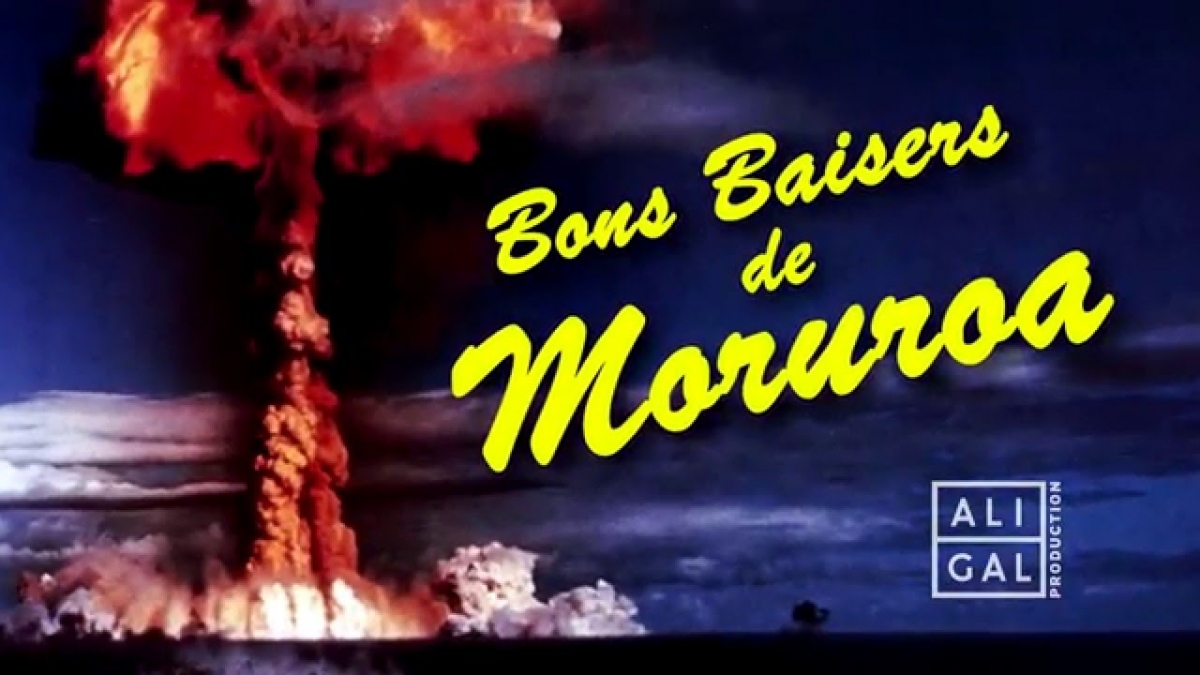 Uranium Film Festival director Norbert Suchanek is confident that "Greetings from Mururoa" (Bons baisers de Moruroa) has a good chance to win the festival´s Yellow Einstein award next year, 2017.
Uranium Film Festival director Norbert Suchanek is confident that "Greetings from Mururoa" (Bons baisers de Moruroa) has a good chance to win the festival´s Yellow Einstein award next year, 2017. 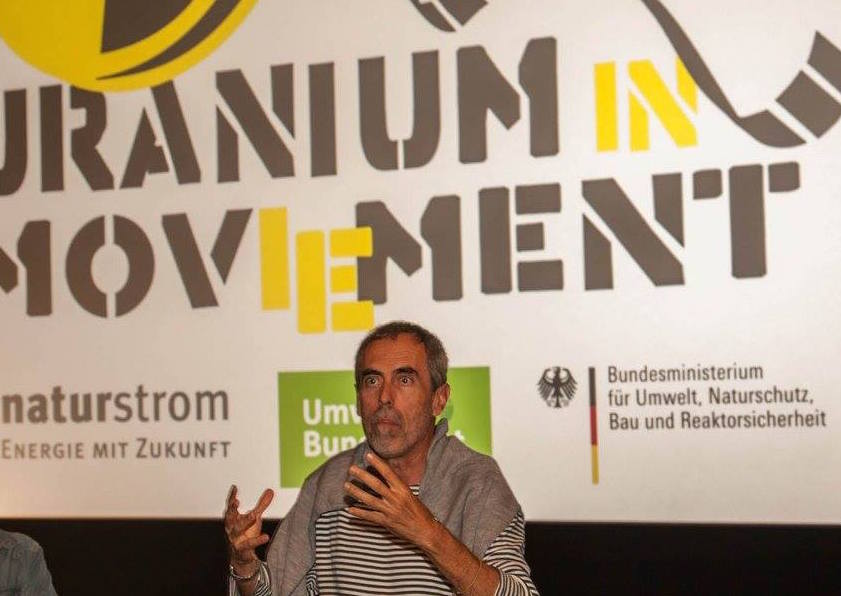
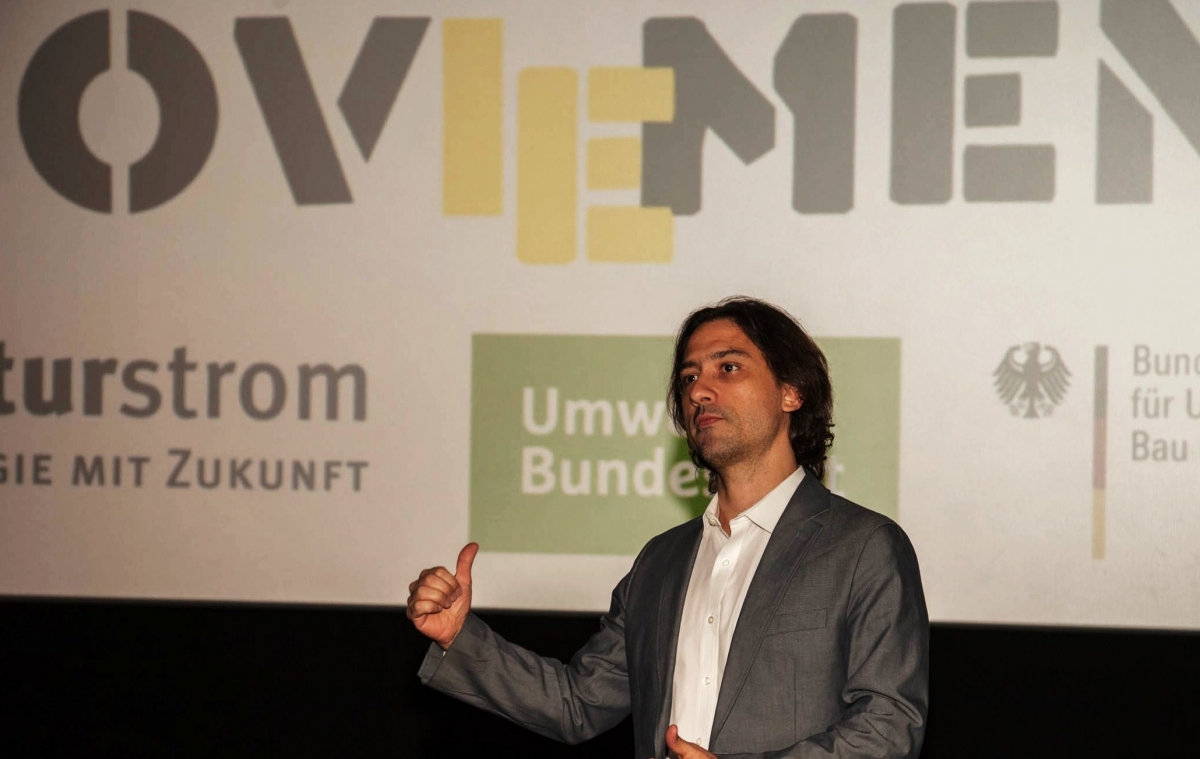 Another nuclear film highlight was
Another nuclear film highlight was 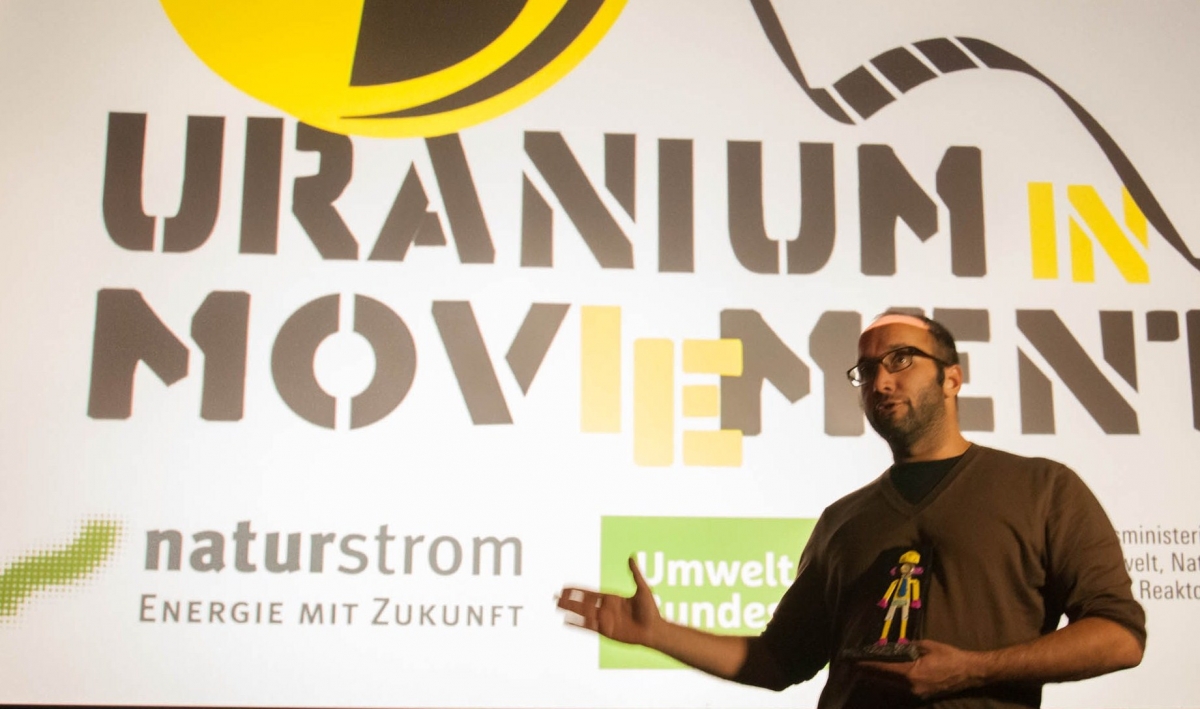 Highlight number five in Berlin was of course the screening of
Highlight number five in Berlin was of course the screening of 
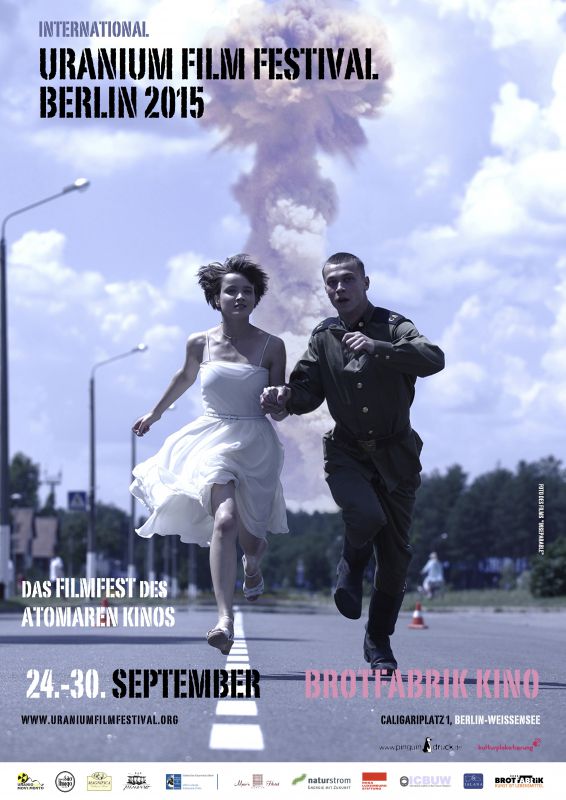
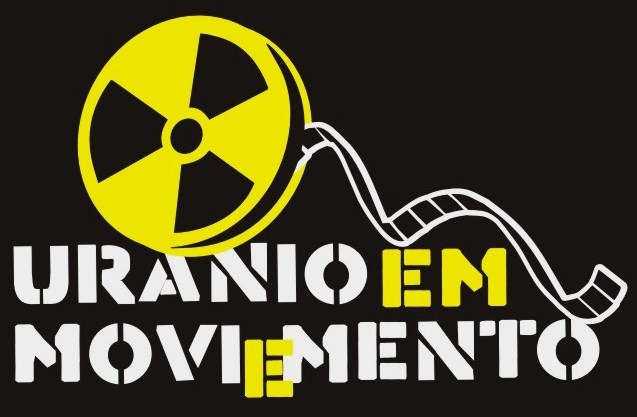
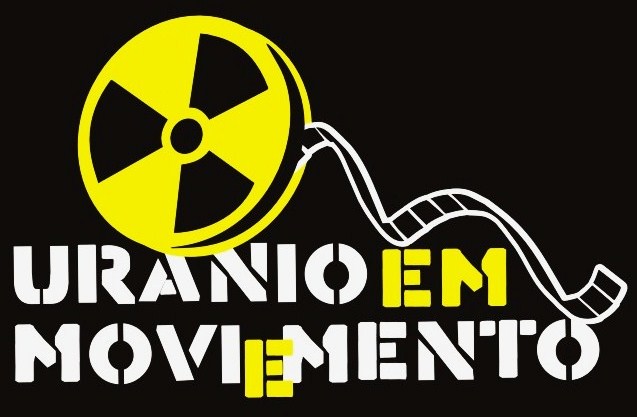
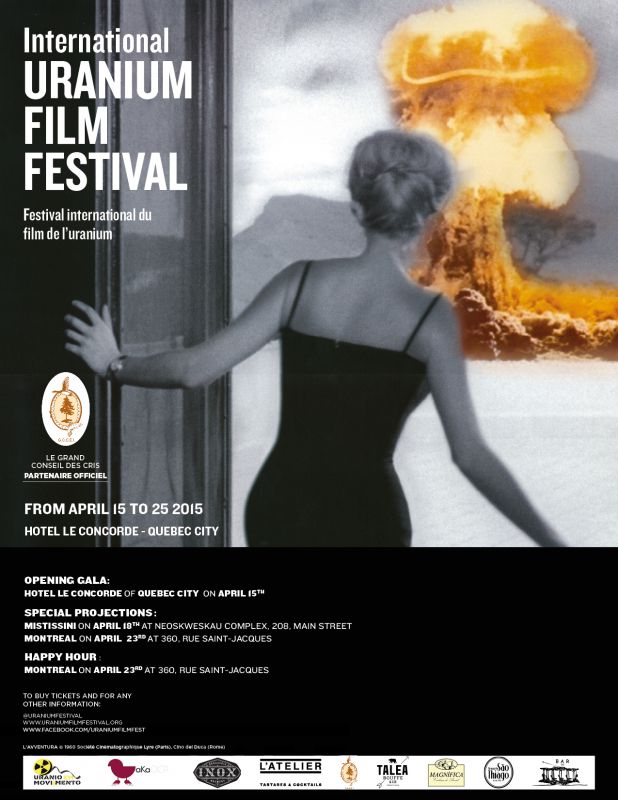
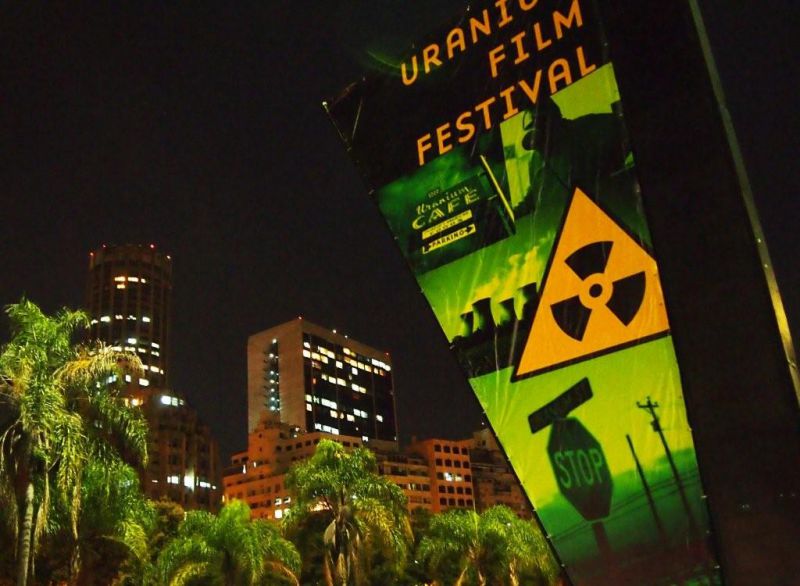
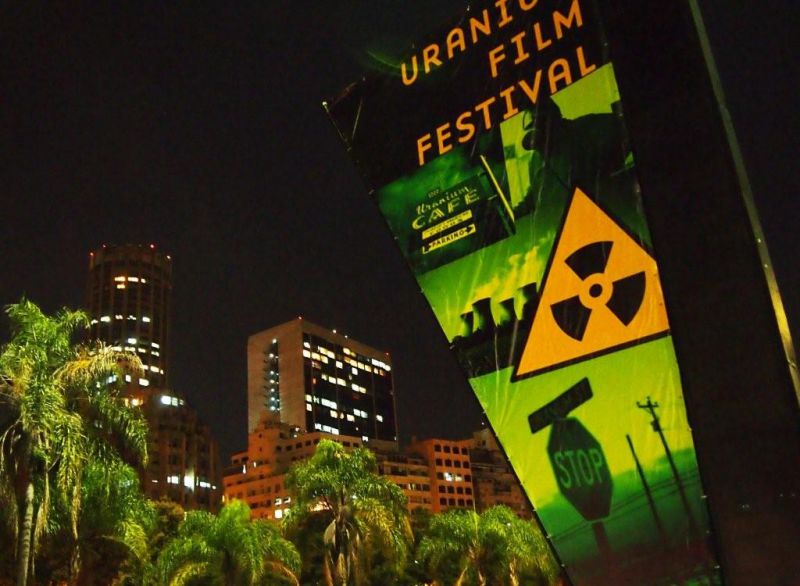
 SUCHANEK NORBERT G.
SUCHANEK NORBERT G. 


